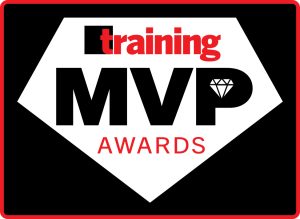Over the past three years, the New Team Member Orientation at Premise Health has undergone significant innovation to improve its effectiveness and efficiency, moving from a decentralized, departmental approach to a centralized one and reducing the training duration.
Program Overview
The revamped program consists of a combination of live virtual sessions and self-paced learning modules, covering various aspects of company culture, products, benefits, and systems. New Team Member Orientation now includes the following key components:
- Day One Orientation: A 1.5-hour virtual session is held every Monday, introducing new hires to Premise Health’s culture, mission, vision, values, and products. It also provides demonstrations of essential tools such as SharePoint and Accelerate.
- Product Overviews: Product owners lead quarterly sessions covering the company’s eight core products in detail.
- Benefits Sessions: Weekly virtual sessions explain Premise Health’s comprehensive benefits package, including medical, dental, and other perks.
- Welcome to Premise Webinar: Monthly virtual sessions with the CEO provide insights into the company’s mission, vision, values, innovation roadmap, organizational goals, and allows for Q&A.
- Self-Paced Learning: Modules such as “What Is Direct Healthcare” help new hires understand the industry and its differences from traditional healthcare.
The orientation program primarily is delivered virtually through Zoom, ensuring accessibility and flexibility for new team members. This includes live sessions for the day one orientation, product overviews, benefits sessions, and CEO Webinars. Self-paced learning modules are accessible online.
Short-term reinforcement of the orientation includes:
- Premise Peer Program: New team members are assigned experienced mentors who can provide ongoing support, guidance, and answer questions.
- Knowledge Checks: Periodic quizzes or assessments are conducted to reinforce key concepts and ensure understanding.
- One-on-One Check-Ins: Regular one-on-one meetings with new team members are scheduled weekly to discuss progress, address any challenges, and provide feedback.
- Job Shadowing: New hires are allowed to observe experienced team members in their roles to learn best practices and gain additional insights.
Long-term reinforcement includes:
- Career Development Planning: Managers work with new hires to develop personalized career paths and identify opportunities for growth and development.
- Skill-Building Workshops: Learning and Development offers ongoing workshops and training sessions to help employees stay updated on industry trends and develop new skills.
- Performance Reviews: Managers conduct regular performance reviews to provide feedback, set goals, and recognize achievements.
- Mentorship Programs: Formal mentorship programs are established to connect new hires with experienced employees who can offer guidance and support throughout their careers.
- Team Member Resource Groups (TMRGs): New team members are encouraged to participate in employee resource groups to foster a sense of belonging and provide opportunities for networking and professional development. Premise Health currently offers 11 different TMRGs such as Women’s Business Group, Black Business Group, Asian Americans and Pacific Islanders Business Group, Latino Professionals Group, Veterans and Advocates, Early in Professionals Group, Seasoned Professionals Group, LGBTQ+ Business Group, Parents and Caregivers Business Group, Be Well Business Group, and Disability Visibility.
To assess the effectiveness of the New Team Member Orientation program, Premise Health employs evaluation methods such as:
- Post-Orientation Surveys: These include collecting feedback from new hires on their satisfaction with the program, understanding of company culture and products, and overall onboarding experience.
- Retention Rates: The organization monitors turnover rates to determine if the orientation contributes to employee satisfaction and retention.
- Employee Engagement Surveys: These measure employee satisfaction and engagement levels to gauge the program’s effectiveness in creating a positive work environment.
Results
Premise Health’s turnover rate decreased from 20.5 percent to 10.5 percent from 2023 to 2024, surpassing the company’s goal.





